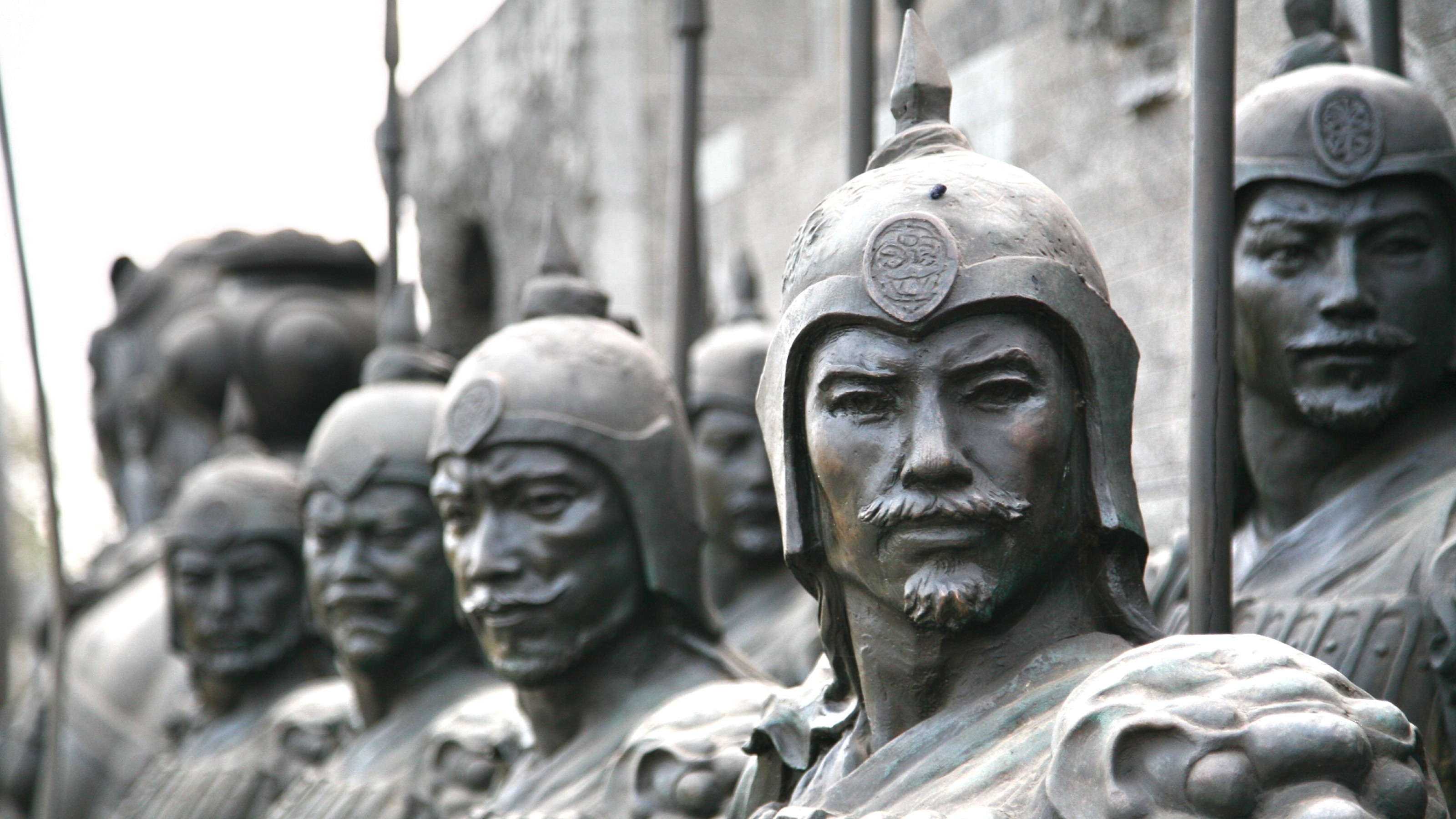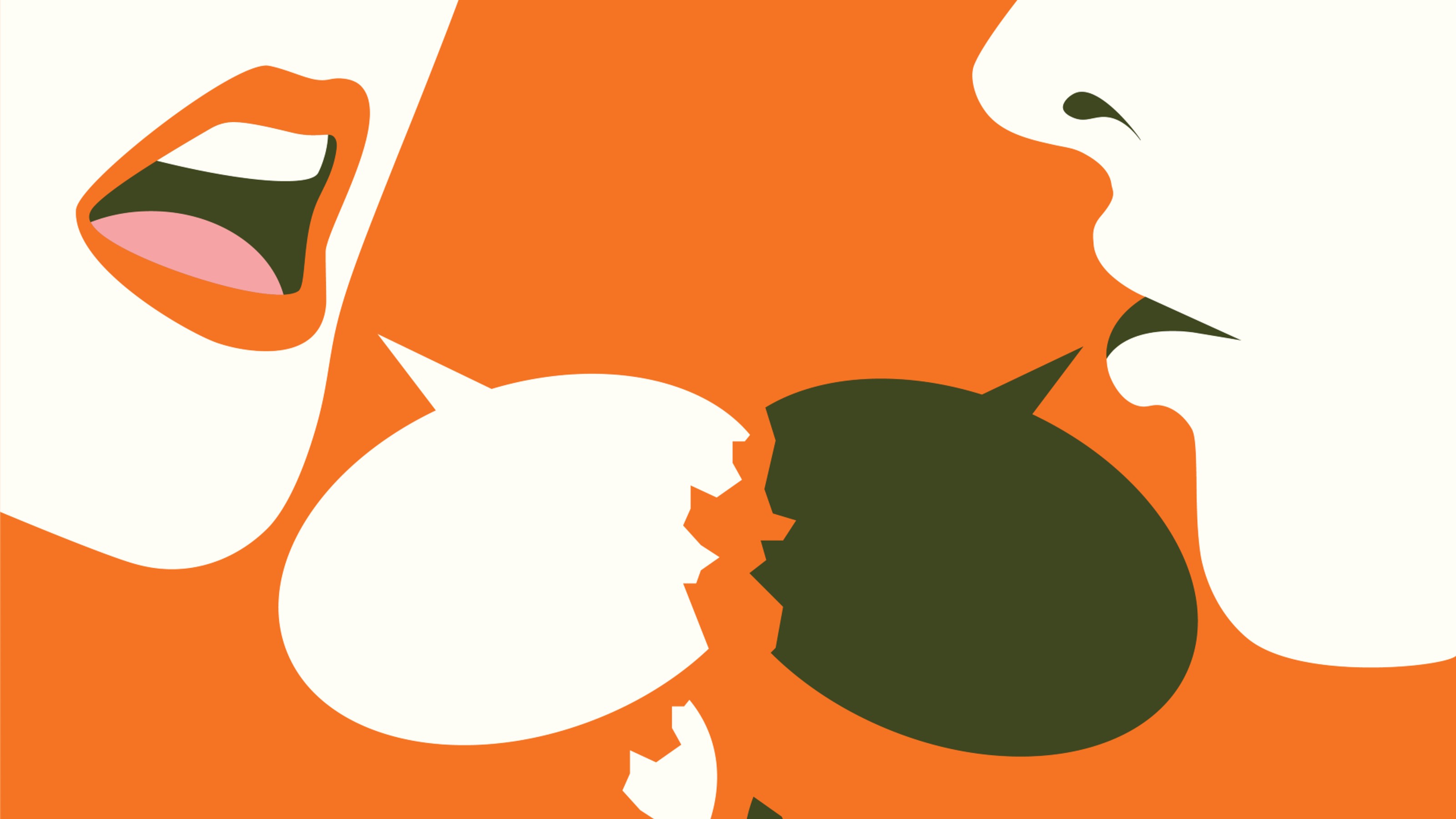6 strategies to manage conflict with emotional intelligence

- Conflict can bring out the worst in people’s behavior.
- While discomforting in the short-term, interpersonal conflict can be necessary to build healthy relationships in the long-term.
- By bringing our emotional intelligence to bear, we can better manage conflict in ways that serve all involved.
Have you ever had an argument at work? A tiff with a friend? Maybe a disagreement with your partner, or a straight-up row with your parents? Of course you have. Interpersonal conflict is a universal human experience, a natural consequence of being in relationships with other people. Even those couples who say they never fight at the very least, bicker, scrap, squabble, and quarrel on occasion.
It is unfortunate then that such conflicts can bring out the worst in us thanks to a process science journalist Daniel Goleman calls “amygdala hijacking.” The amygdala is one of two almond-shaped neuron clusters located in the temporal lobes, and together they help the brain process things like memory, emotion, and motivation. They also arm the body’s response to threats and fearful situations.
When a conflict feels threatening — and many do thanks to the emotional and social stakes involved — the amygdala sounds the biochemical alarm. It cues the sympathetic nervous system to flood our bodies with stress hormones, heightening our senses and making us quick to react. That same alarm, however, drowns out the more reasoned voice of our prefrontal cortex, the brain’s so-called “executive center.” Our judgment dulls, and complex decision-making gives way to the fight, flight, or freeze reflex.
Can we intercept our amygdala to prevent it from hijacking our brains? Nope. The effect is near-instantaneous for the obvious reason that when it comes to perceived threats, it’s better to be fast and wrong than thoughtful and slow. Can we avoid conflict altogether? Again, no. Some conflicts are necessary. If done correctly, they can actually improve our relationships by righting wrongs and airing grievances before they can fester.
The best we can manage is to learn to recognize our bodily responses to conflict and use our emotional intelligence to ease them — habits that Goleman likens to “punching in the secret code that shuts down a home security system’s false alarm.” Here are six strategies to help you do just that.
#1. Know your conflict style
Everyone approaches conflict differently. Recognizing your conflict style can help you better understand your emotions, why you act as you do, and what you want out of the conflict. At the same time, recognizing the conflict styles of others can help you be more compassionate in your approach and resolutions. As such, reading conflict styles requires self-awareness and empathy, both hallmarks of emotional intelligence.
Perhaps the best-known way to assess conflict styles is the Thomas-Kilmann model. Developed by management consultants Kenneth Thomas and Ralph Kilmann, the model maps people’s responses to conflict based on how assertive and cooperative they are. Those who are low in cooperation and low in assertiveness tend to avoid conflict, while those who are high in both want to collaborate. Competitors are very assertive, accommodators are very cooperative, and compromisers are your textbook conflict Goldilocks.
While the validity of the Thomas-Kilmann model as a research tool has been questioned, it does provide a nice shorthand to start considering why you and others approach conflict differently. But it’s highly unlikely that only two traits account for all conflict styles. According to Priya Parker, an author and conflict resolution facilitator, a person’s conflict style is a complicated synthesis of many facets. Yours includes your personality but also your culture, your beliefs, your environment, the family dynamics you grew up in, and the resources available to you. Before engaging in conflict, it’s best to consider those facets for all parties involved.
#2. Be a heat-seeking missile
Before engaging in conflict, Parker recommends locating what she calls the “heat.” This heat represents those emotional or social areas where you hear your internal alarms ringing — those conversations that, while difficult, are necessary for the relationship to thrive. The tricky thing about heat, however, is that it spreads. As the conflict escalates, it can ignite every past peeve, slight, and irritant a person’s amygdala can conjure from its memory bank. This leads people to want to win a conflict — any conflict! — rather than addressing the core heat that needs cooling.
To find the heat, Parker encourages a mental activity called “heat mapping.” Simply ask yourself: What is the most important conversation we need to have? What are the perceived reasons we don’t want to go there? How will having that conversation reduce the heat, and what would the healthiest form of that conversation look like? The goal is to find a way to have the necessary conversation so it ends with a more authentic connection.
“A good conversation is the gentle harnessing of the right amount of heat for a group to face what it needs to face,” Parker said. “[Healthy heat] helps us put in the middle of the table the conversations or the decisions that we are avoiding, the conversations that sometimes feel too complex to have.”

#3. Keep calm and tarry on
Of course, in the heat of the moment, that’s a difficult task. For this reason, conflict facilitators and couples therapists recommend cooling down before that important conversation.
“If you’re really upset with someone and they’re trying to problem solve, it can feel like they’re not even listening. I often encourage, in those moments, that someone needs to call a timeout,” Noam Ostrander, an associate professor of social work at DePaul University, told TIME. “Perhaps somebody says, ‘Okay, I want to have this conversation. I need like 10 minutes to calm down. I love you, I’m not going anywhere. We’re going to come back to this, we’re going to figure it out.’”
Such a timeout allows you to appease your amygdala, reinstate your prefrontal cortex, and return to the problem with your social and problem-solving skills fully engaged. You can also use the downtime to map the heat. Some experts even advise scheduling a specific time for the conflict. This way, you can give the conversation your full attention rather than trying to stressfully multitask around it. It’s no coincidence that many relational flare-ups intensify when people try to juggle the conversation alongside work emails, bumper-to-bumper traffic, or the family’s overlapping afternoon schedules.
#4. Shun the Four Horsemen of the argument
Psychologist John Gottman has spent a career researching what habits and behaviors breed lasting marriages. One of his key findings — backed by subsequent research — isn’t that happy couples never argue. They do. They just argue differently. Specifically, such couples steer clear of what Gottman calls the Four Horsemen:
- Criticism: Attacking the other person directly (different than offering a critique or voicing a complaint).
- Contempt: Making the other feel worthless or ridiculed.
- Defensiveness: Playing the blameless victim when feeling unjustly accused or criticized.
- Stonewalling: Complete withdrawal from the conversation and emotional shutdown of the relationship.
These horsemen are a sign of a marriage in trouble. And although Gottman’s research focused on marriage, it doesn’t take much imagination to see how such communication habits damage healthy conflict in any relationship — from the workplace to the social space. When a Horseman arrives in your communication, it’s time to reassess your emotional state, take a pause, and consider a new response. (You should prepare a very sincere, very thoughtful apology, too.)
#5. Show appreciation and affiliation
People often treat conflict as an opportunity to express their grievances, motivations, and even life stories in drawn-out monologues. Instead, remember that conflict is a dialogue that should make as much room for the other person’s views, desires, and goals as your own.
Conversational moves that can help us make room for that dialogue include avoiding editorializing, asking questions for clarification, listening with an open mind, and showing respect for the other person as well as an appreciation for where you do agree. Again, that’s difficult to do in the middle of a conflict, which is why it is best to practice these moves during less intense conversations.“
“Once you truly understand and see the value in their perspective, let them know I hear where you’re coming from,” Dan Shapiro, an expert on conflict resolution at Harvard University, told Big Think in an interview. “There is nothing more in the world that we like than to feel appreciated. Recognize your power to appreciate them.”
#6. Practice doesn’t make perfect (but better)
According to Goleman, the amygdala’s role as the brain’s emotional memory bank greatly affects how people respond to conflict. It compares past information to the current threat and then selects a well-rehearsed action. This knee-jerk process may make it seem as though your history and personality predetermine your emotional intelligence. While those qualities certainly weigh on the scales, you are not without recourse.
“Not everybody has as much control [over their emotions] as they might like, but everybody has a little more control than they think they do,” Lisa Feldman, a university distinguished professor of psychology at Northeastern University, told Big Think in an interview.
She notes that by practicing strategies like those above, they too become emotional memories and more automatic over time. Reflecting on those experiences — both the successes and failures — further builds your emotional intelligence, helping you to adjust how you respond in the future.
Feldman adds: “Sometimes in life, we are responsible for changing things, not because we’re culpable or to blame for those things, but because we’re the only ones who can change them.”
Learn more on Big Think+
With a diverse library of lessons from the world’s biggest thinkers, Big Think+ helps businesses get smarter, faster. To access Priya Parker’s full class for your organization, request a demo.





